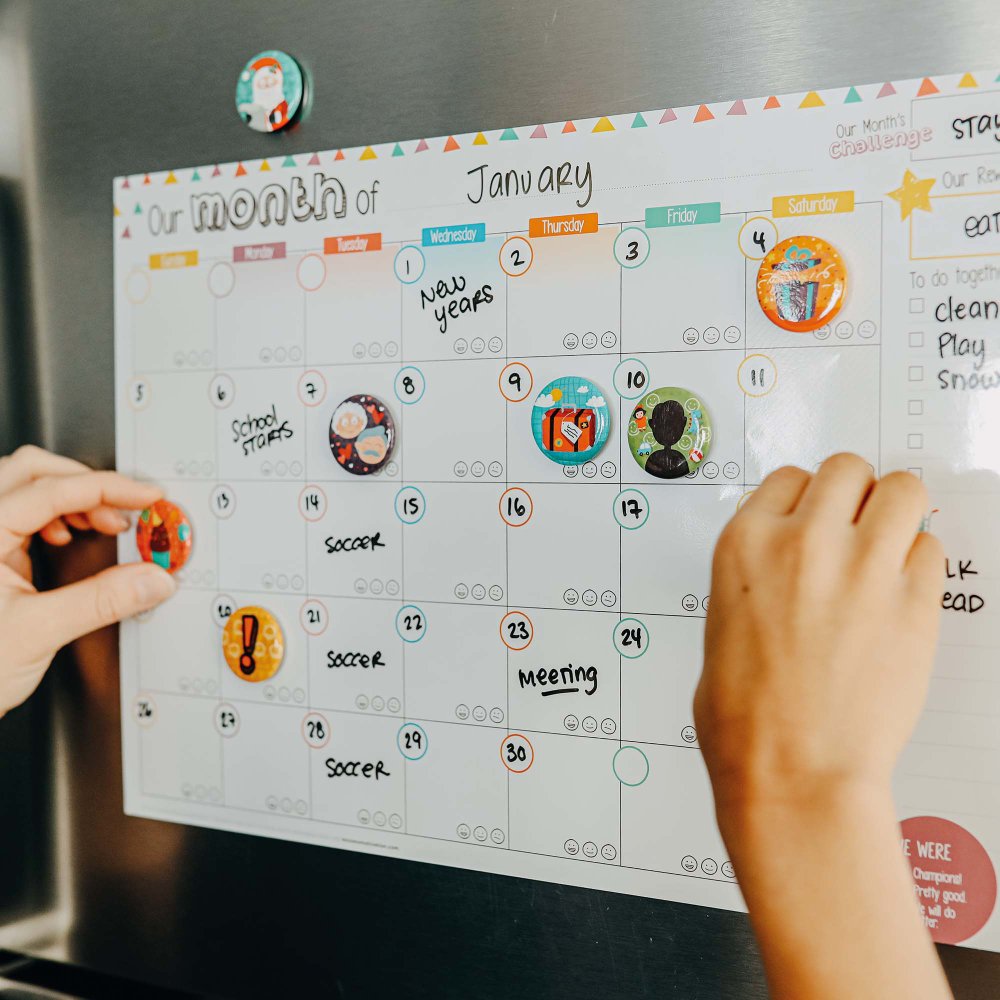The Parenting & Family Blog

The Best Ways to Stay Organized as a Busy Parent
In today’s fast-paced world, balancing work and family life is a challenge that many parents face. Balancing a career and raising children can make parents feel overwhelmed and stretched thin. This is where effective organisation and time management become crucial. Staying productive as a parent means more than just managing tasks. It’s about finding a balance that helps both your personal and work life. This blog will share the best organisation hacks for families. We’ll focus on time management tips for parents. These tips will help you handle the challenges of modern parenting.
Key Benefits / Why It Matters

Enhancing Family Time
One of the primary benefits of being organised is the ability to carve out more time for family activities. When parents use their time well, they can set aside time for family bonding. This helps build strong relationships and creates lasting memories.
Reducing Stress
Organisation helps in reducing the chaos that often accompanies a busy household. A structured plan helps parents foresee challenges and tackle them ahead of time. This way, they can reduce stress and anxiety.
Improving Professional Performance
For working parents, maintaining a balance between work and family is crucial for career success. Time management skills help parents balance work and family. This way, they can meet job demands while still being present at home. As a result, they often see improved job performance and satisfaction.
Step-by-Step Guide / Actionable Insights

Step 1: Prioritise Tasks
Begin by identifying the most important tasks that need your immediate attention. Use a priority matrix to categorise tasks based on urgency and importance. This will help you focus on what truly matters and avoid getting bogged down by less critical activities.
Example: Priority Matrix Categories
- Urgent & Important: Deal with these tasks immediately (e.g., attending a parent-teacher meeting).
- Important but Not Urgent: Schedule these tasks (e.g., meal planning for the week).
- Urgent but Not Important: Delegate if possible (e.g., responding to minor emails).
- Not Urgent & Not Important: Eliminate or postpone these tasks.
Step 2: Create a Family Calendar
A family calendar is an essential tool for keeping track of everyone’s schedules. A centralised calendar helps keep track of school events, work meetings, and extracurricular activities. This way, nothing gets missed.
Tips for an Effective Family Calendar
- Use digital tools like Google Calendar or Cozi for easy access and updates.
- Assign colour codes for different family members to keep schedules organised.
- Include reminders for key events to avoid last-minute surprises.
Step 3: Establish Routines
Routines provide structure and predictability, which are vital for both children and adults. Set up morning and evening routines to make daily tasks easier. This includes meal prep, getting ready for school, and bedtime rituals. Consistent routines help reduce decision fatigue and create a sense of stability for children.
Example: Simple Family Routine
- Morning: Wake-up time, breakfast, school preparation.
- Afternoon: Homework, snack time, free play.
- Evening: Family dinner, bedtime story, lights out.
Step 4: Delegate Responsibilities
Involve your children in household chores appropriate for their age. Delegating tasks makes your job easier and helps children learn important life skills.
Age-Appropriate Chores
- Ages 3-5: Picking up toys, feeding pets.
- Ages 6-8: Setting the table, folding laundry.
- Ages 9-12: Vacuuming, washing dishes.
- Teens: Cooking simple meals, and managing their laundry.
Step 5: Utilise Technology
Leverage technology to simplify tasks and save time. Use apps for meal planning, grocery shopping, and task management.
Recommended Apps
- Todoist: Task management and prioritisation.
- Mealime: Meal planning and grocery lists.
- Trello: Organising family projects and to-do lists.
Additional Expert Tips & Common Mistakes to Avoid
Best Practices
- Batch Similar Tasks: Group similar tasks together to improve efficiency. Set aside specific times to answer emails or make phone calls. This keeps you focused instead of spreading these tasks throughout the day.
- Set Boundaries: Establish clear boundaries between work and family time. When you’re working, focus on professional tasks, and when you’re with family, be present and engaged.
- Practice Self-Care: Prioritise self-care to maintain your physical and mental well-being. Exercising regularly, getting enough sleep, and practising mindfulness can keep you energised and focused.
Common Mistakes to Avoid
- Overcommitting: Learn to say no to activities or commitments that do not align with your priorities. Overcommitting can lead to burnout and decreased productivity.
- Neglecting Personal Time: Ensure you allocate time for yourself amidst your busy schedule. Personal time is essential for recharging and maintaining a healthy work-life balance.
- Ignoring Family Feedback: Regularly check in with your family to understand their needs and adjust routines accordingly. Ignoring feedback can lead to dissatisfaction and conflict.
Advanced Insights / Expert Recommendations
Embrace Minimalism
Adopting a minimalist lifestyle can reduce clutter and simplify decision-making. Focus on quality over quantity, and regularly declutter your home to create a more organised and peaceful environment.
Implement a Weekly Review
Conduct a weekly review to assess what worked well and what didn’t. Use this time to adjust your plans and set goals for the upcoming week. This practice helps to maintain accountability and continuous improvement.
Invest in Professional Development
Enhance your time management skills by attending workshops or reading books on productivity. Continuous learning can provide new insights and techniques to further improve your organisational abilities.
Busy Parent Hacks: Proven Tips to Stay Organised and Stress-Free
Staying organised as a busy parent is an ongoing process that requires dedication and adaptability. Using the tips in this guide, you can build a balanced and fulfilling life that helps your family and career. Remember, the key to success lies in prioritising tasks, establishing routines, and making time for self-care.
Begin using these practices today and see how they improve your work-life balance. What steps will you take to become a more organised and productive parent? Let us know your favourite organisation hacks in the comments below!









